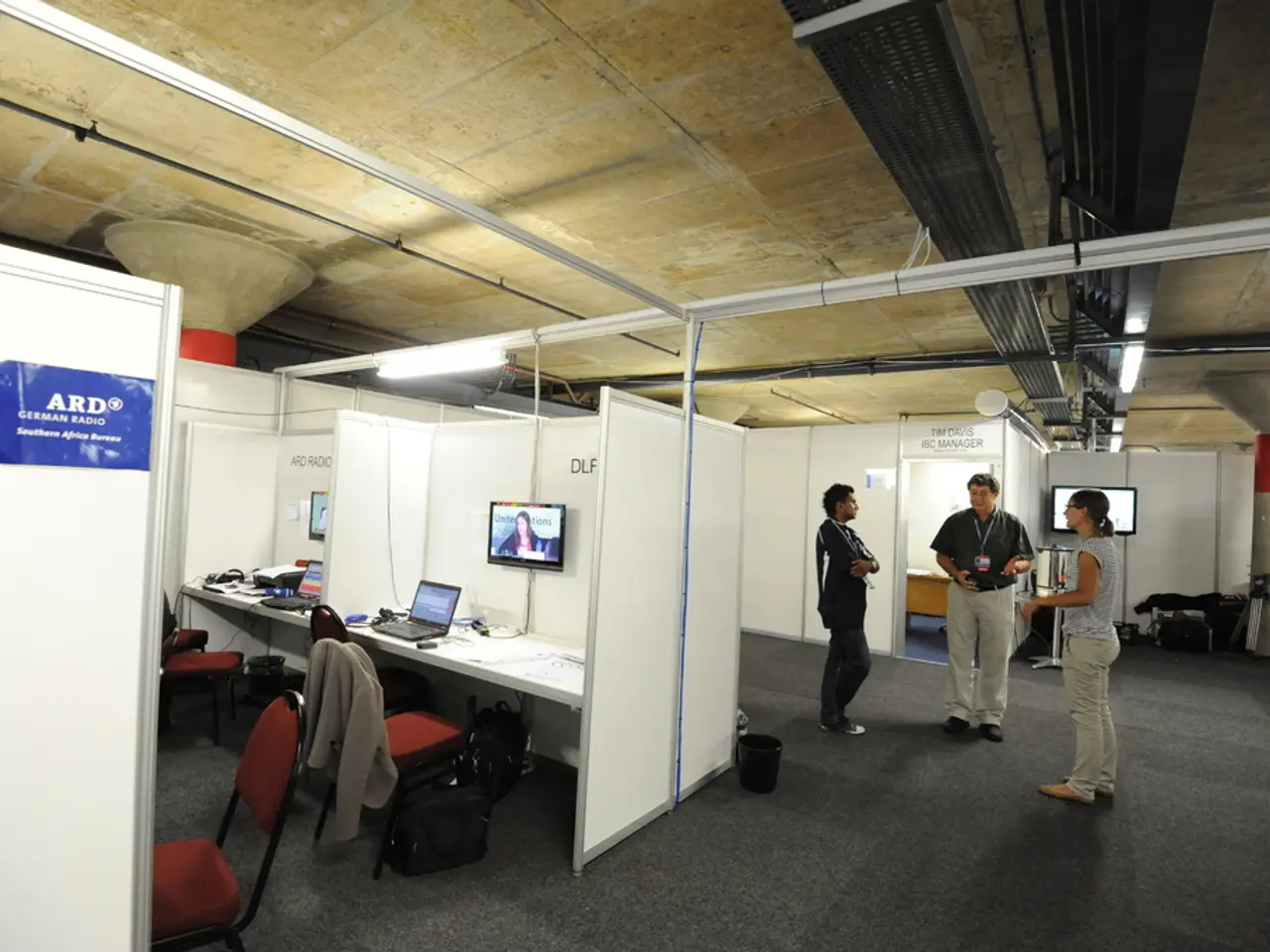U.S. White House negotiations shape Ireland's potential future economic landscape
The ongoing negotiations between the EU and the US have the potential to resolve the tariff issue that has been causing concern for Irish companies. These negotiations, which have recently commenced in Washington, involve big American multinationals and the US president.
The tariffs in question, imposed by Donald Trump, have been a source of worry for Irish exporters, particularly those in the dairy, pharmaceuticals, and computer chips sectors. Previously, Irish exports to the US were subject to a 15% flat tariff rate, with an additional 10% tariff, particularly impacting Irish dairy products such as Kerrygold butter. However, a recent EU-US framework trade agreement has capped tariffs at 15%, avoiding the earlier "stacking" of tariffs that could reach 26% on Irish dairy.
While this development is a step in the right direction, the impact varies by sector. For instance, Irish beef is reportedly benefiting, but there remains nervousness, especially in dairy, pharmaceuticals, and computer chips. Ornua, an Irish dairy co-operative, estimated a €50 million annual hit due to the additional 10% tariff, which should now reduce under the 15% ceiling.
The negotiations in Washington have been pivotal to this framework agreement. The deal not only established tariffs ceilings but also involved commitments from the EU to increase investments in the US. The EU has pledged $600 billion in investments over Trump's term and $750 billion in US energy exports through 2028, aimed at balancing trade and strengthening the US energy sector.
For Ireland, this results in somewhat reduced tariff burdens on exports to the US but ongoing uncertainty due to the evolving nature of the US-EU trade relationship and its impact on critical sectors such as pharmaceuticals and food production. The negotiations are part of a broader trade strategy by the Trump administration to recalibrate trade balances and create market access by reducing non-tariff barriers and tariffs on both sides.
In summary, Trump's tariffs have been moderated by recent EU-US negotiations, reducing tariffs on Irish exports from potentially harmful higher rates to a capped 15%. However, the situation remains delicate with ongoing adjustments influenced by talks in Washington involving American multinationals and the US government. Irish companies are currently scrambling to understand the impact of these tariffs on their exports to the US, and much of the impact remains to be settled. The outcome of these negotiations could significantly affect Ireland, and clarity on the impact of the tariffs on Irish companies is eagerly awaited.
[1] O'Connor, C. (2021). EU-US trade deal: What it means for Ireland. RTÉ News. https://www.rte.ie/news/business/2021/0614/1222813-eu-us-trade-deal-what-it-means-for-ireland/
[2] McLaughlin, M. (2021). EU-US trade deal: What's in it for Ireland? The Irish Times. https://www.irishtimes.com/business/economy/eu-us-trade-deal-whats-in-it-for-ireland-1.4602810
[3] O'Sullivan, S. (2021). EU-US trade deal: What it means for Ireland. The Journal.ie. https://www.thejournal.ie/eu-us-trade-deal-what-it-means-for-ireland-4768277-Jun2021/
- The recent EU-US framework trade agreement has the potential to alleviate concerns about high tariffs in Ireland's finance sector, particularly for Irish dairy companies exporting Kerrygold butter, as it caps tariffs at 15%, improving the trade balance.
- The outcome of the ongoing negotiations between the EU and the US, centered around policy-and-legislation and business, could have significant implications for Ireland's general news, with implications for sectors such as pharmaceuticals and food production.




